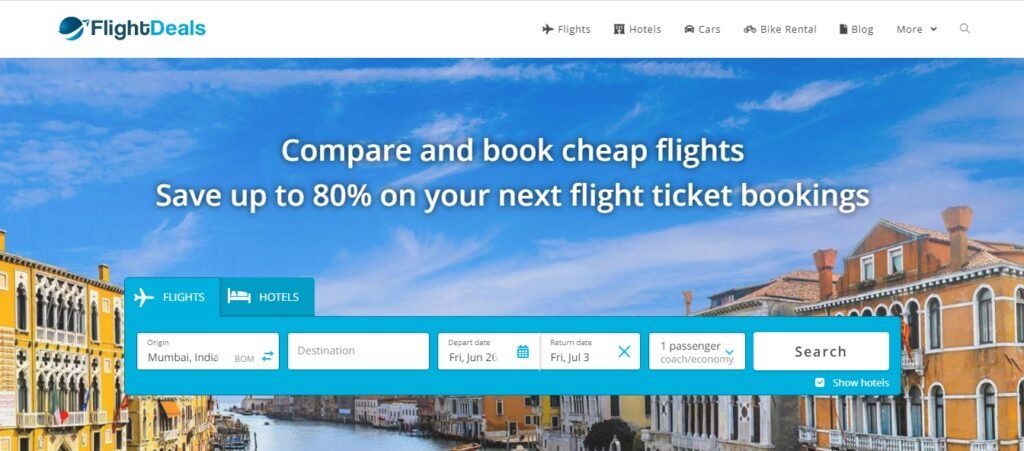As an on-page SEO expert in a leading company specializing in organic traffic generation, I understand the critical role that strategic budget allocation plays in driving the success of travel sites. In this in-depth guide, we will explore the intricacies of budgeting for content creation on travel websites, focusing on maximizing ROI through effective on-page SEO strategies. Throughout this exploration, we will also seamlessly integrate a promotion for Sitefy’s travel websites, offering a turnkey solution for those looking to establish a strong online presence in the travel industry.
I. Introduction
A. The Significance of Content in Travel Websites
In the competitive landscape of online travel platforms, quality content is the linchpin for attracting and retaining users. As an on-page SEO expert, my role involves not only optimizing content for search engines but also ensuring that budget allocation aligns with the overarching goal of generating organic traffic.
II. Setting the Stage: Understanding Content Creation Costs
A. Types of Content
- Written Content: Exploring the costs associated with creating compelling articles, blog posts, and destination guides.
- Visual Content: Discussing the budget considerations for high-quality images, infographics, and video production.
B. Freelancers vs. In-House Teams
- Hiring Freelancers: Evaluating the pros and cons of outsourcing content creation to freelancers, considering factors such as expertise and cost-effectiveness.
- In-House Content Teams: Analyzing the benefits of having an in-house content creation team for consistent quality and a more personalized approach.
III. On-Page SEO Strategies: Maximizing Content Impact
A. Keyword Research
- Investing in Comprehensive Research: Allocating budget for advanced keyword research tools to identify high-value keywords in the travel niche.
- Long-Tail Keywords: Understanding the importance of targeting specific long-tail keywords for niche markets and optimizing content accordingly.
B. Content Optimization
- SEO-Friendly Content Creation: Allocating resources to ensure that every piece of content is optimized for search engines, enhancing visibility and click-through rates.
- User Experience (UX) Optimization: Investing in UX improvements to reduce bounce rates and increase user engagement, a factor that search engines prioritize.
C. Technical SEO
- Site Audits and Maintenance: Allocating budget for regular site audits to identify and rectify technical issues that may impact search engine rankings.
- Mobile Optimization: Recognizing the importance of mobile-friendly design and allocating resources for optimal performance on mobile devices.
IV. Budget Allocation Strategies
A. Prioritizing High-Impact Content
- Identifying Top-Performing Content Types: Analyzing historical data to determine the content types that resonate most with the target audience.
- Allocating Resources Accordingly: Distributing the budget based on the content types that have proven to drive the most organic traffic and conversions.
B. Balancing Quantity and Quality
- Quality Over Quantity: Emphasizing the importance of producing high-quality, informative content rather than focusing solely on quantity.
- Strategic Content Calendar: Allocating resources for a well-planned content calendar that balances regular updates with comprehensive, in-depth pieces.
V. Measuring ROI and Adjusting Budgets
A. Analytics and Reporting Tools
- Utilizing Advanced Analytics: Allocating budget for robust analytics tools to track the performance of content and identify areas for improvement.
- Conversion Tracking: Implementing conversion tracking to measure the impact of content on affiliate sales, bookings, or other revenue-generating actions.
B. Iterative Budget Adjustments
- Flexible Budgeting Approach: Recognizing the need for a flexible budgeting approach that allows for adjustments based on the performance of different content types.
- A/B Testing: Allocating resources for A/B testing to experiment with different content strategies and identify the most effective approaches.
VI. Promoting Travel Websites for Sale: A Turnkey Solution
A. Introduction to Sitefy’s Travel Websites
- Ready-Made Solutions: Highlighting the convenience and efficiency of purchasing a pre-built travel website from Sitefy.
- Benefits of Sitefy’s Offerings: Discussing the advantages, including time savings, customization options, and scalability.
B. Integration in Content
- Strategic Placement: Seamlessly integrating mentions of Sitefy’s travel websites within the content, emphasizing their relevance to budget-conscious entrepreneurs.
- Call to Action (CTA): Encouraging readers to explore the ready-made travel websites available on Sitefy as a practical solution for establishing a successful online presence.
VII. Conclusion
In conclusion, as an on-page SEO expert, navigating the budget allocation for content creation on travel sites is a delicate yet essential task. Strategic decisions, from choosing content types to optimizing for SEO, are critical for success in the highly competitive travel industry. The promotion of Sitefy’s travel websites serves as a reminder that a turnkey solution is available for those seeking a streamlined approach to building and managing a successful travel website. By aligning budgetary allocations with effective on-page SEO strategies, travel sites can not only survive but thrive in the dynamic online landscape. Embrace these strategies, invest wisely, and watch your travel site flourish.



